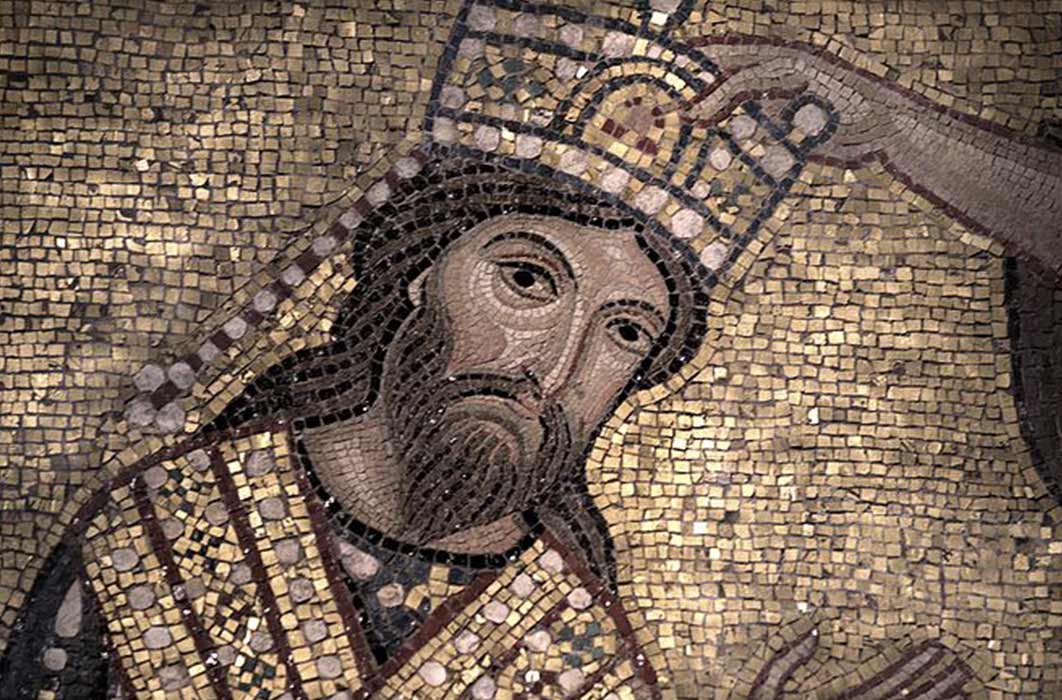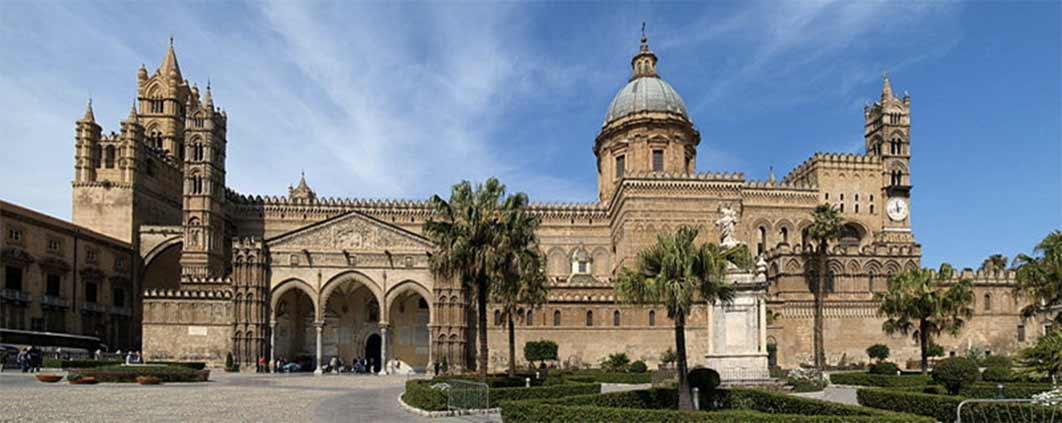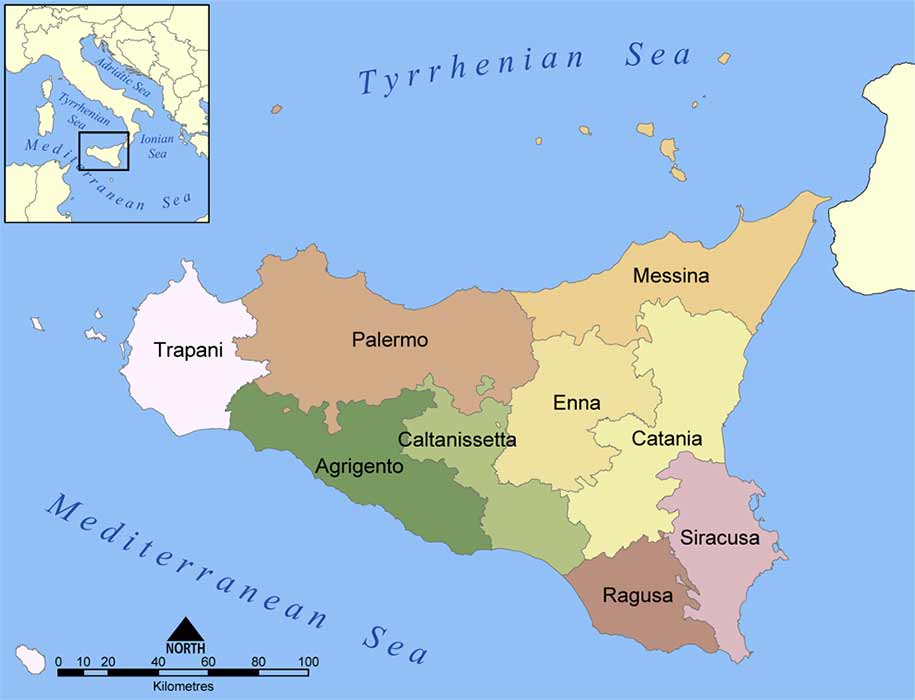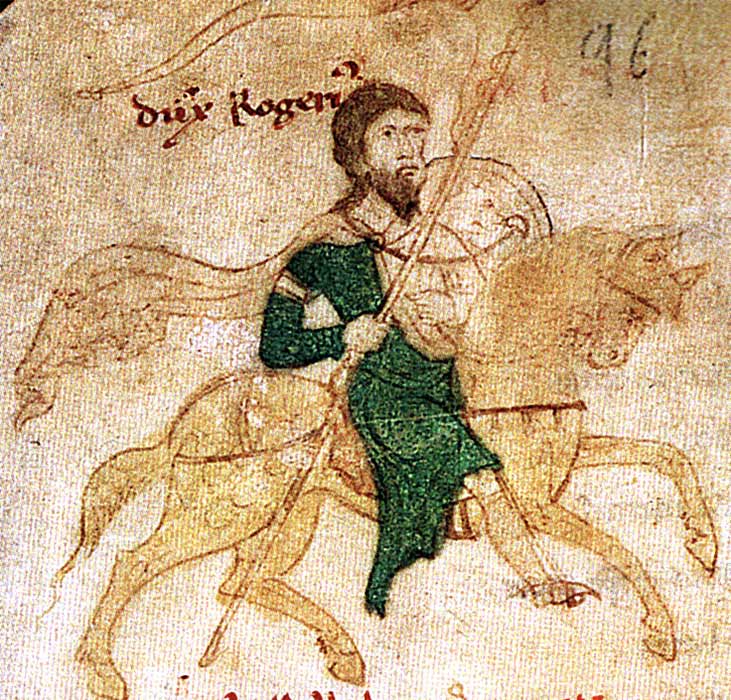
King Roger II Of Sicily: Christian Sultan And Half Heathen King
One of the most successful, but little known kings who reigned during the Middle Ages was Roger II (1095-1154) who controlled the island of Sicily along with Apulia and Calabria in Southern Italy. Historically Sicily had been occupied by Greek settlers and then Byzantine, followed by Muslim dominance from 827 to 1061. His father Roger de Hauteville (c.1031-1101) (Italian: Rugerro) and uncle Robert Guiscard, formidable adventurers from Normandy, had conquered parts of the wealthy, fertile island in the 11th century. Robert and Roger I were sons of Tancred of Hauteville, lord of a noble family in Normandy. Sicily was coveted by all contemporary kingdoms for its strategic trading position between and the eastern and western Mediterranean along with its rich farmlands, continually fertilized by the nutrient-rich ash plumes from Mount Etna. Under Norman control Palermo became the wealthiest and most populous city in Europe.

Cathedral of Palermo, begun by Roger I but with numerous expansions and renovations, combining the various changing architectural styles. (Kiban / CC BY-SA 3.0)
By 1072 Roger I had gained control of the County of Sicily and reigned over the north-western territory as its first Count. After conquering Palermo, he established his palace and administration center on the city’s highest hilltop, reconstructing the fortified citadel of the Muslims he had defeated. The palace was surrounded by a verdant garden with water channels and fruit trees; he created royal hunting grounds just outside Palermo and stalked them with deer and wild boars. A contemporary source wrote that Count Roger’s palace was “truly splendid for the abundance of their decoration, [where] the ‘king’ either discusses affairs of state with his intimates in great secrecy or else receives notables to talk about the public affairs of the kingdom”. As with the Muslim palace transition, their most important Friday mosque was converted back to the city’s Christian cathedral, as it had been under Byzantine rule.

Map of the Provinces of Sicily, (Public Domain)
The Reign Of Roger II
Upon his father’s death, Roger II succeeded to the throne at age nine under the regency of his mother Adelaide de Vasto who fought to protect his rights as sovereign. Young but exceedingly ambitious, Roger took control of his small realm upon turning 18 and launched an effort to expand the territories won by his father and uncle. He eventually conquered all of Sicily along with Apulia and Calabria in southern Italy. On Christmas Day 1130 at his capital city, Roger II was formally crowned by an emissary of the pope as the first King of Sicily; he held power until his death at 58 years.
- Hereford Mappa Mundi: Legendary Cities, Monstrous Races, and Curious Medieval Beasts
- Richard the Lionheart – The Crusader King
- Sicily: Where Cultures and Histories Converge and Giants Roam
During his youth in Palermo, his mother ensured that he was well-educated by Greek and Muslim tutors and spoke the three languages that prevailed on the island: Latin, Greek and Arabic. Roger possessed superior intelligence along with compelling drive that he applied to developing his inherited and newly-won territories into a wealthy and sophisticated cosmopolitan kingdom of prestige and culture. It was said that “he accomplished more in his sleep than others did when awake”. Another contemporary described Roger as one “who in time of peace or of war was never idle”. His burgeoning realm quickly became a rival to the long-established Mediterranean trade centers of Cairo and Constantinople in prosperity, splendor and learning. The reign of these two leaders and those who followed them would introduce fundamental and irreversible changes to the demographic, religious and linguistic base of the island over the next 250 years.

King Roger II riding to war, a drawing from the Liber ad honorem Augusti of Petrus de Ebulo, (1196). (Public Domain)





